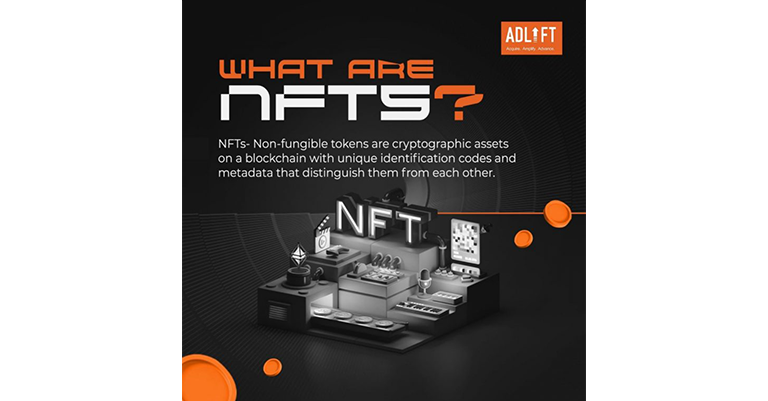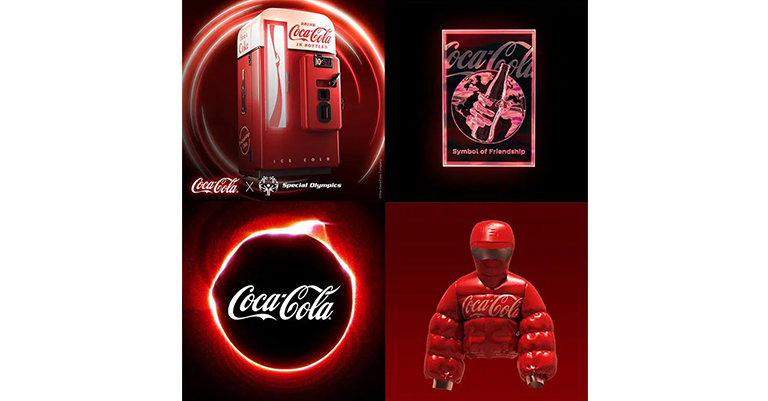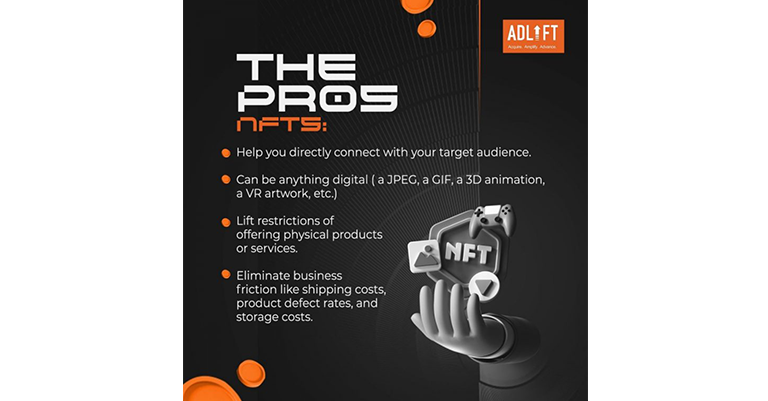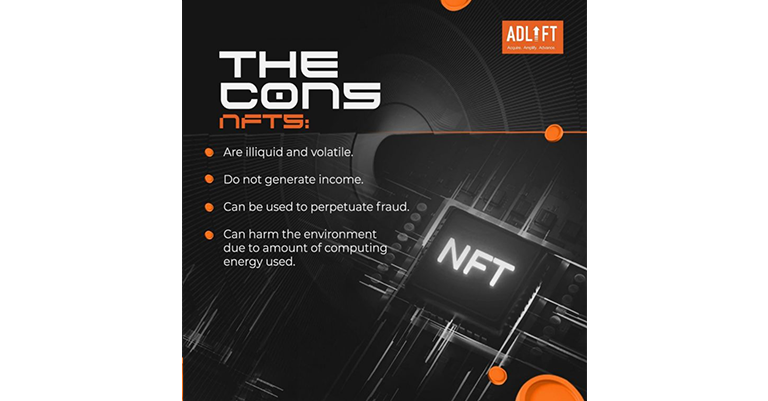NFTs: The Next Wave in Digital Marketing?
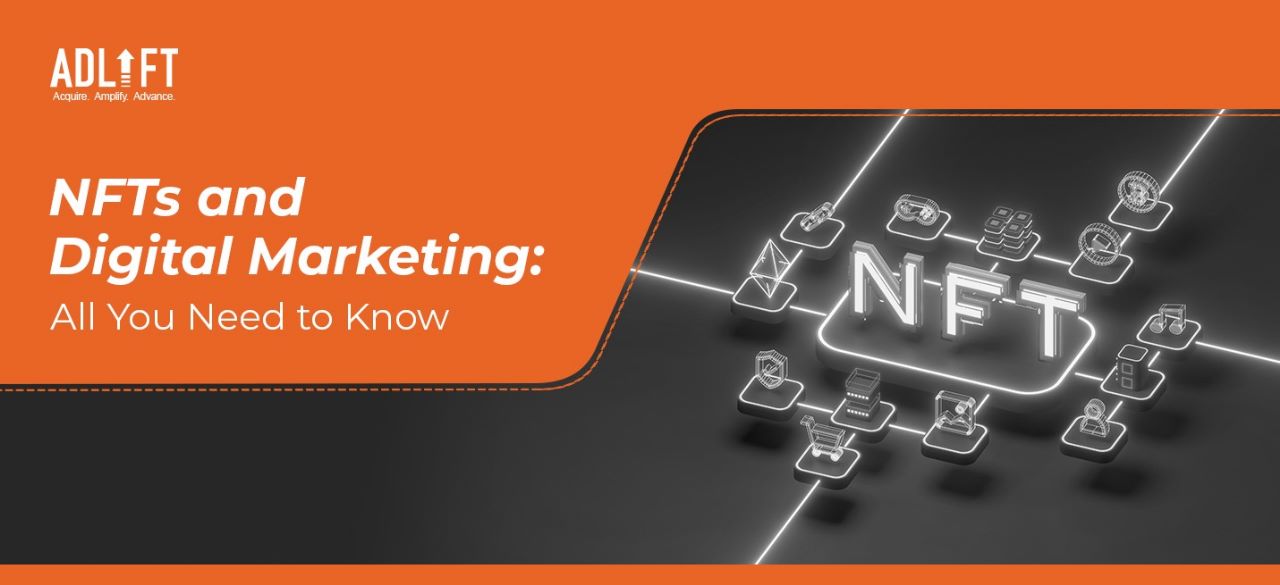
Since it initially became widely used in the 1990s, the internet has advanced considerably. The early days of the internet (Web 1.0), where users could simply consume content, soon gave way to the more dynamic and user-focused Web 2.0 of today. And now, as we enter the “Web3.0” era of the internet, a decentralised network fuelled by blockchain technology is all set to take over.
If we talk about marketing during the Web1.0 era, initiatives were concentrated on raising awareness and increasing website traffic. However, with the rise of Web2.0 and social media, marketing became focused more on customer involvement and relationship building. And now, Web3 is ushering us into a new era of marketing, where importance is placed on authenticity, trust, transparency, and ownership. One of the key technologies of this newera is NFTs.
What are NFTs?
Before we go on to discuss how NFTs fuel digital marketing, let us begin by understanding what they really are.
Non-fungible tokens, colloquially known as NFTs, are taking the world by storm. They are unique digital assets that cannot be replicated or substituted for another, making them perfect for digital artwork, event ticketing, collectable items, etc. In 2021, NFTs went mainstream, and brands began experimenting with digital assets.
Together with the Bored Ape Yacht Club, PUNKS Comic, and gmoney, Adidas launched an NFT campaign. Since its launch in 2020, NBA Top Shot, a website for buying and trading digital artefacts of highlight sequences from NBA games, has experienced tremendous development as well. Additionally, verified NFTs could also be used as profile images on the social media site Twitter.
By the looks of it, NFTs will undoubtedly play a significant part in the future of digital marketing as Web3.0 continues to gain traction. The brands at the vanguard of this transition are experimenting with new methods to engage with their customers by utilising NFT technology at its core.
Understanding the Connection Between NFTs And Digital Marketing
Every marketer understands that effective marketing goes beyond simply providing clients with goods and services. A brand must also be able to create memorable experiences and build enduring relationships if they wish to create a successful marketing plan.
An ideal way to achieve that is through NFTs while also making a foray into the Metaverse and keeping up with the ever-evolving digital sphere. NFTs may not produce an immediate return on investment, but they are crucial in assisting other initiatives to increase conversions and revenue.
Including digital trends like NFTs in the brand’s marketing plan is a great method to increase the size of the customer base. Especially now that there are between 15,000 and 50,000 NFT sales every day and NFTs are becoming more and more popular. Additionally, it is also an excellent way to increase the brand’s awareness. Organisations can use NFTs to show off their brand in the Metaverse. Online video games are the main Metaverse retail environment, and 74% of Gen Z users claim to have made at least one purchase there.
So, brands can create their goods or branded merchandise as NFTs and then sell them on various marketplaces so that customers can purchase the items they want and utilise the assets in the Metaverse. Further establishing the brand in the digital space through unique customer experiences.
Examples of Brands Using NFTs For Digital Marketing
Now that we have established how effective NFTs can be in digital marketing let us take you through some examples of how the brands are making the most of it.
1. Coca-Cola
In July 2021, Coca-Cola began its first NFT venture by earning $575,883.61 from the sale of limited-edition collectables in an online auction.
On the occasion of World Friendship Day, the beverage giant held an auction. Coca-Cola also disclosed that the successful bidder had purchased a vintage SMEG refrigerator that was “loaded with ice-cold Coca-Cola to share with friends.” The strategy was successful because it complemented the company’s long-standing positioning of Coke as a friendship symbol.
2. Budweiser
While the world may be aware of NFTs, it does not necessarily mean that they may also own one. But if someone is going to enter the game, it is in the brand’s best interest to make it as easy for its customers as possible.
Budweiser gracefully achieved it through the NFT launch, which included 1,936 distinctive digital cans as a nod to the year 1936, when the first Budweiser can was made. The brand created a vanity URL – Budweiser.com/nft– to make it easier for its consumers to buy tokens with credit cards, Ethereum, or Bitcoin.
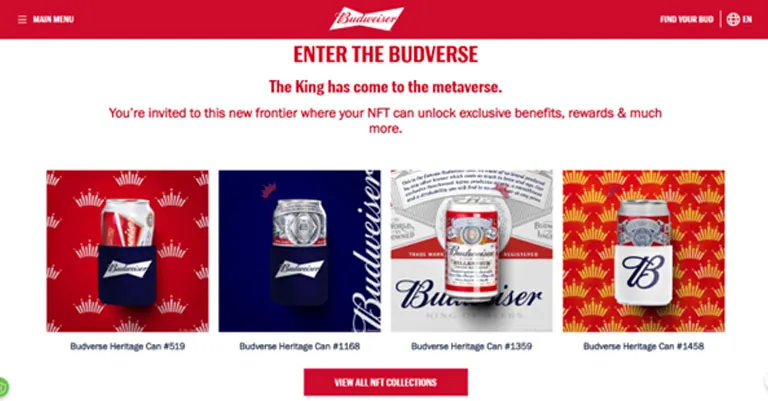
3. Adidas
The value of NFTs is not always derived from the token itself but rather from the sense of community created through ownership.People are drawn in because it gives a sense of exclusivity and shared experience.
Doing that only through NFTs can be difficult, but not for Adidas. The brand decided to pair its initial NFT launch with a physical product line that included a tracksuit, a sweatshirt that included a blockchain address, and an orange beanie. So, even if the consumers did not feel the appeal of buying an NFT, they could still be a part of the community by purchasing the tangible product that was just as exclusive.
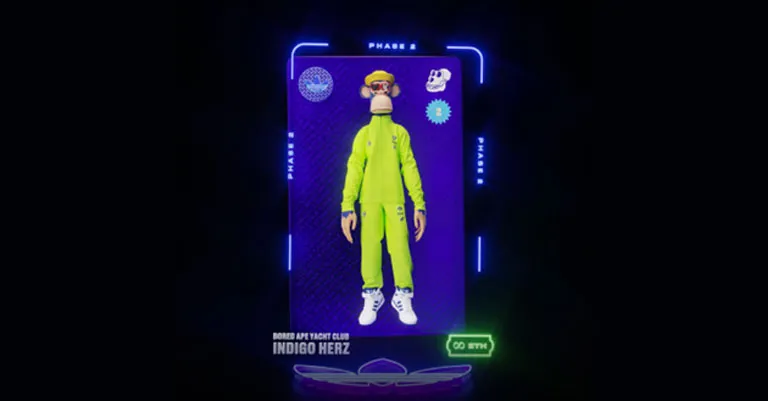
Pros and Cons of NFTs For Digital Marketing
Like every other marketing tool out there, NFTs also havetheiradvantages and disadvantages. So, before you take a decision for your brands, let’s explore the pros and cons of NFTs.
Pros of NFTs for Your Brand
- They are an excellent way to generate profits
- NFTs help create unique brand experiences, thus encouraging consumer loyalty
- If you wish to build or strengthen a sense of community among your consumers, NFTs are a great way to achieve it
- NFTs are unique and cannot be replicated or exchanged, which further adds to their value
- Since there are no tangible objects and everything is digital, there is no need to worry about issues like storage, delivery, handling, etc.
Cons of NFT for Your Brand
- Since everything is digital, consumers may not seem to find them to be worthy of the investment
- NFTs are no different from cryptocurrencies when it comes to market volatility. While an NFT maybe extremely valuable today, it may not hold the same value tomorrow
- Every single NFT transaction requires as much power as a conventional household uses in a day and a half, making it an environmental risk
Conclusion
NFTs are a very new concept to digital marketing, and there is much to be explored in that arena. It’s an excellent marketing medium to explore, especially for brands that are passionate about incorporating new technologies and delving into new possibilities that may exist in the Web 3.0 era.
AdLift is one such firm thatis ready to help you explore new horizons and take your brand to greater extents, exploring the potential possibilities of NFTs. Connect with us today!
Recent Posts
- Is Your Content Strategy Working for You — or Against You? December 19, 2024
- 2024 Google Search Trends in India: What Captured Our Curiosity This Year? December 19, 2024
- AdLift’s 2025 Social Media Calendar: Your Roadmap to Success December 17, 2024
- Understanding Google’s December 2024 Core Update: What to Expect December 17, 2024
- Optimizing For Google AI Overviews: What Marketers Need To Know November 19, 2024
- Google’s Latest Shake-up: November 2024 Core Update November 13, 2024
- SEO Ranking Explained: Proven Techniques to Enhance Your Website’s Traffic October 22, 2024
- The Importance of Mobile SEO Optimization: A Guide to Staying Competitive October 16, 2024
- What is Evergreen Content? Build Traffic That Never Fades October 15, 2024
- The Role of Technical SEO Elements in Enhancing Site Performance and Rankings October 10, 2024
Get
in Touch
Contact AdLift for a 360-degree marketing plan

